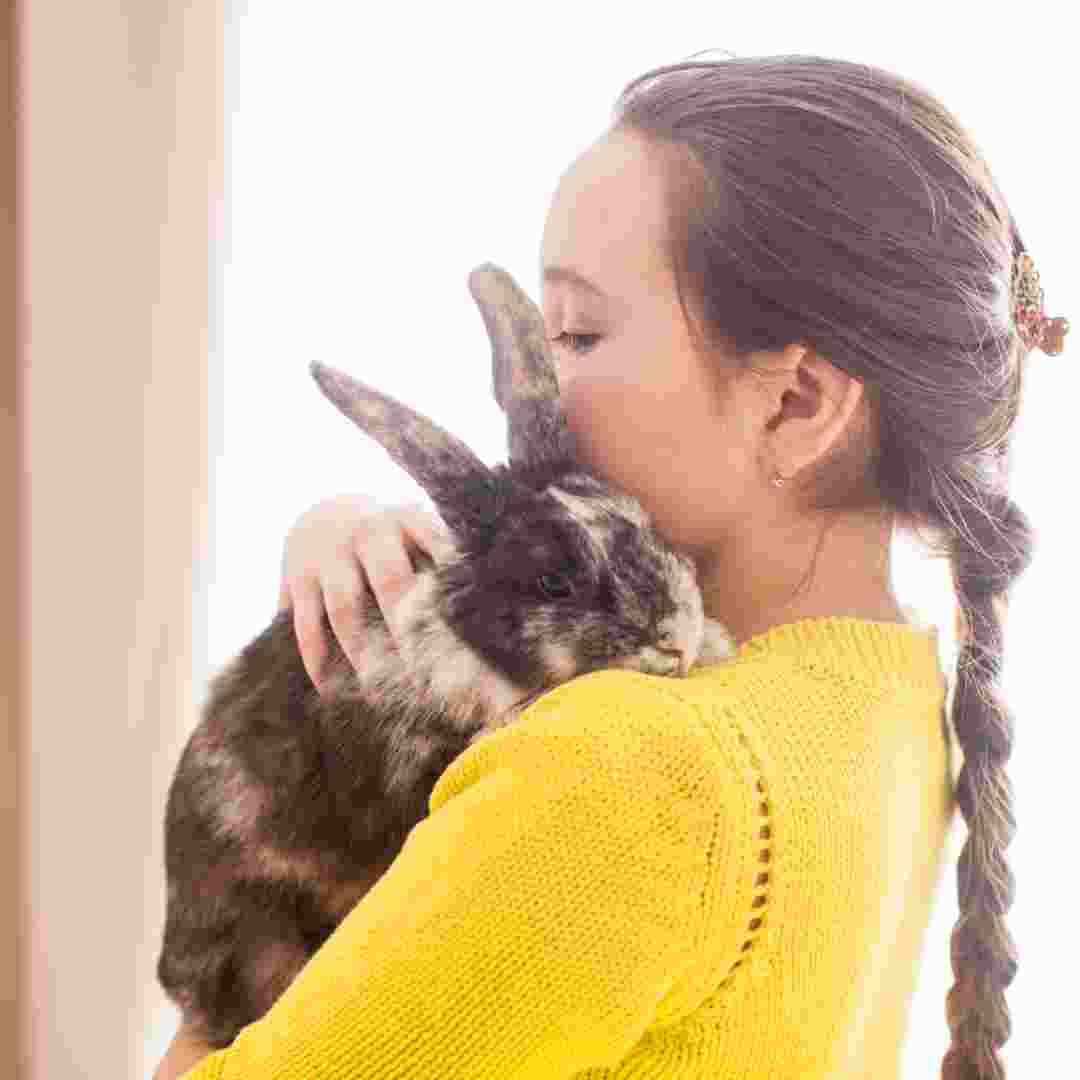Contents Table
Introduction
Common Rabbit Diseases: Causes, Symptoms, and Treatments
How to Recognise Rabbit Stress and Prevent Illness
How to Avoid Rabbit Sickness from Overfeeding
Rabbit Vaccinations: What You Need to Know
Rabbit Parasite Recognition and Treatment
Q&A
Conclusion
Introduction
Rabbits are cute, but they can get sick. Rabbits can get sick like other pets. To keep your rabbit healthy and happy, you must know the signs and symptoms of common rabbit ailments. Rabbits often have respiratory, gastrointestinal, and parasitic infections. Understanding these diseases' symptoms will help you diagnose and cure your rabbit.
Common Rabbit Diseases: Causes, Symptoms, and Treatments
Rabbits are lovely pets but susceptible to sickness. Knowing the symptoms, causes, and treatments of common rabbit ailments can help owners care for their pets.
Pasteurella multocida bacteria produce pasteurellosis, a frequent rabbit disease. Pasteurellosis causes sneeze, nasal discharge, and breathing problems. Untreated infection can cause pneumonia. Treatment for pasteurellosis usually requires antibiotics and assistance.
Ear mites are another prevalent rabbit disease. These small parasites feed on rabbit ear wax and oils, causing irritation and inflammation. Head shaking, ear scratching, and black or brown ear discharge are ear mite symptoms. Ear mite treatment usually involves cleaning and topical medicine.
Rabbits can also develop gastrointestinal stasis, which slows or stops digestion. Lethargy, loss of appetite, and soft, foul faeces are symptoms of gastrointestinal stasis. Fluids and digestive stimulants are used to treat gastrointestinal stasis.
Finally, malocclusion can affect rabbits' teeth. Teeth misalignment causes pain and difficulties eating. Drooling, weight loss, and feeding difficulties are malocclusion symptoms. Malocclusion treatment usually requires tooth trimming and a soft diet.
Rabbit owners may best care for their pets by understanding common ailments' signs, causes, and treatments. If your rabbit seems sick, see a professional for a diagnosis and treatment.
How to Recognise Rabbit Stress and Prevent Illness
Rabbits are gregarious and need lots of attention. They also suffer from stress, which might harm their health. It's crucial to recognise rabbit stress and prevent it.
Behaviour changes like hiding, aggressiveness, or excessive grooming are the most prevalent stress signs in rabbits. Less activity, hunger loss, and sleep problems may occur. Take action to minimise stress if your rabbit exhibits any of these behaviours.
A safe and pleasant habitat is one of the best strategies to reduce rabbit stress. Keep their cage clean and large enough to move around. Give them lots of toys and fresh hay and water.
Additionally, your rabbit needs lots of attention and engagement. Play with them and stimulate them mentally. This will keep them active and reduce stress.
Finally, watch for behavioural changes in your rabbit. Reduce tension immediately if you see it. This will keep your rabbit happy and healthy.
How to Avoid Rabbit Sickness from Overfeeding
Though cute, rabbits need specific attention to keep healthy. Diet is crucial to rabbit care. Understanding the dangers of overfeeding and how to avoid making your rabbit sick is crucial.
We must first grasp the effects of overfeeding. Obese rabbits can have heart, lung, joint, and potentially fatal health issues. Overfeeding can also produce gastrointestinal stasis, which slows or stops digestion. Not addressed quickly, this can kill.
Give your rabbit a balanced diet to avoid overfeeding. Hay, fresh veggies, and a few pellets are nutritious. Hay is abundant in fibre and aids your rabbit's digestive tract, thus it should be their main food. Fresh veggies should be offered sparingly to avoid gastric distress. Pellets are high in calories and can cause obesity, so offer them sparingly.
Track your rabbit's weight and change their nutrition. Reduce pellets and treats if your rabbit is gaining weight. To stop your rabbit from losing weight, feed them more hay and veggies.
Finally, give your rabbit lots of exercise. This will prevent obesity and keep children healthy. Give your rabbit lots of room to run and play and toys to keep them entertained.
Overfeeding can harm rabbits, but these tips can help keep them healthy and happy.
Rabbit Vaccinations: What You Need to Know
Rabbit vaccinations are essential for health and safety. Some rabbit infections are lethal, but vaccines protect them. Understanding rabbit immunisations and vaccinating your rabbit is crucial.
Rabbits can contract deadly infections. By encouraging the immune system to create antibodies, vaccines protect rabbits from certain diseases. Vaccines are offered for myxomatosis, rabbit hemorrhagic illness, and pasteurellosis. Talk to your vet about rabbit immunisations and make sure your rabbit gets immunised.
Rabbits need early vaccinations. Early vaccines are recommended by the American Rabbit Breeders Association for rabbits at 8 weeks. To safeguard your rabbit, follow the prescribed vaccination regimen.
In addition to vaccines, rabbits should be kept clean and away from disease-carrying animals. Keeping your rabbit's habitat clean and parasite-free is crucial.
Rabbit vaccinations are essential for health and safety. Understanding rabbit immunisations and vaccinating your rabbit is crucial. Following the immunisation schedule and maintaining proper hygiene can help protect your rabbit from many ailments.
Rabbit Parasite Recognition and Treatment
Rabbits get fleas, mites, and worms. Recognising and treating parasite infestations is crucial. The most common rabbit parasites and how to treat them will be covered in this article.
The most frequent rabbit parasite is fleas. Small, dark-colored insects feed on host blood. Fleas cause severe itching, hair loss, and red, inflamed skin. Use a flea comb to remove fleas from the rabbit's fur, then apply a topical spot-on or oral medication.
Mites are another prevalent rabbit parasite. The tiny, eight-legged insects feed on their host's skin and fur. Mite infestations cause frequent scratching, hair loss, and red, inflamed skin. Apply mite shampoo or spot-on treatment.
In rabbits, worms are the third most prevalent parasite. They dwell in the host's intestines as little, white thread-like animals. Weak coat, diarrhoea, and weight loss indicate worm infestation. Oral dewormers or spot-on treatments treat worms.
Finally, rabbit parasite infestations should be identified and treated. The most frequent parasites in rabbits are fleas, mites, and worms, which can be treated with a flea comb, mite shampoo, or oral dewormer. Consult your vet if you suspect your rabbit has parasites.

Q&A
1. What are some prevalent rabbit diseases?
Rabbits can get ear mites, lung infections, dental disorders, gastrointestinal issues, and skin infections.
2. What are ill rabbit symptoms?
A sick rabbit has a decreased appetite, weight loss, lethargy, discharge from the eyes or nose, coughing, sneezing, and behavioural abnormalities.
3. How can I keep my rabbit healthy?
A clean, safe habitat, a balanced diet, and frequent vet visits help keep your rabbit healthy.
4. What should I do if my rabbit is sick?
If you suspect your rabbit is sick, take it to the vet immediately.
5. Do rabbits need vaccinations?
Rabbits need immunisations to prevent certain diseases. Your rabbit's vaccines can be recommended by your vet.
Conclusion
Poor food, parasites, bacterial and viral diseases, and environmental stress all make rabbits sick. A good diet, a clean and safe habitat, and frequent veterinary checkups can help avoid rabbit disease. If your rabbit gets sick, take it to the vet right away for the finest care.
